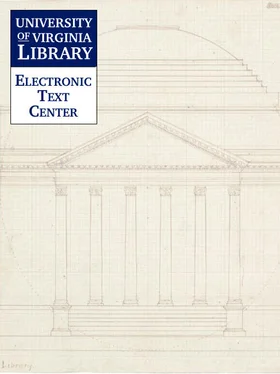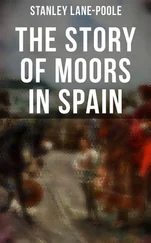Hendrik Loon - The Story of Mankind
Здесь есть возможность читать онлайн «Hendrik Loon - The Story of Mankind» весь текст электронной книги совершенно бесплатно (целиком полную версию без сокращений). В некоторых случаях можно слушать аудио, скачать через торрент в формате fb2 и присутствует краткое содержание. Год выпуска: 2000, Издательство: Electronic Text Center. University of Virginia Library., Жанр: Старинная литература, на английском языке. Описание произведения, (предисловие) а так же отзывы посетителей доступны на портале библиотеки ЛибКат.
- Название:The Story of Mankind
- Автор:
- Издательство:Electronic Text Center. University of Virginia Library.
- Жанр:
- Год:2000
- ISBN:нет данных
- Рейтинг книги:3 / 5. Голосов: 1
-
Избранное:Добавить в избранное
- Отзывы:
-
Ваша оценка:
- 60
- 1
- 2
- 3
- 4
- 5
The Story of Mankind: краткое содержание, описание и аннотация
Предлагаем к чтению аннотацию, описание, краткое содержание или предисловие (зависит от того, что написал сам автор книги «The Story of Mankind»). Если вы не нашли необходимую информацию о книге — напишите в комментариях, мы постараемся отыскать её.
The Story of Mankind — читать онлайн бесплатно полную книгу (весь текст) целиком
Ниже представлен текст книги, разбитый по страницам. Система сохранения места последней прочитанной страницы, позволяет с удобством читать онлайн бесплатно книгу «The Story of Mankind», без необходимости каждый раз заново искать на чём Вы остановились. Поставьте закладку, и сможете в любой момент перейти на страницу, на которой закончили чтение.
Интервал:
Закладка:
At the same time, the Marquis de Laplace was working on a new theory of creation, which made the earth a little blotch in the nebulous sea out of which the planetary system had been formed and Bunsen and Kirchhoff, by the use of the spectroscope, were investigating the chemical composition of the stars and of our good neighbour, the sun, whose curious spots had first been noticed by Galileo.
Meanwhile after a most bitter and relentless warfare with the clerical authorities of Catholic and Protestant lands, the anatomists and physiologists had at last obtained permission to dissect bodies and to substitute a positive knowledge of our organs and their habits for the guesswork of the mediæval quack.
Within a single generation (between 1810 and 1840) more progress was made in every branch of science than in all the hundreds of thousands of years that had passed since man first looked at the stars and wondered why they were there. It must have been a very sad age for the people who had been educated under the old system. And we can understand their feeling of hatred for such men as Lamarck and Darwin, who did not exactly tell them that they were ``descended from monkeys,'' (an accusation which our grandfathers seemed to regard as a personal insult,) but who suggested that the proud human race had evolved from a long series of ancestors who could trace the family-tree back to the little jelly-fishes who were the first inhabitants of our planet.
The dignified world of the well-to-do middle class, which dominated the nineteenth century, was willing to make use of the gas or the electric light, of all the many practical applications of the great scientific discoveries, but the mere investigator, the man of the ``scientific theory'' without whom no progress would be possible, continued to be distrusted until very recently. Then, at last, his services were recognised. Today the rich people who in past ages donated their wealth for the building of a cathedral, construct vast laboratories where silent men do battle upon the hidden enemies of mankind and often sacrifice their lives that coming generations may enjoy greater happiness and health.
Indeed it has come to pass that many of the ills of this world, which our ancestors regarded as inevitable ``acts of God,'' have been exposed as manifestations of our own ignorance and neglect. Every child nowadays knows that he can keep from getting typhoid fever by a little care in the choice of his drinking water. But it took years and years of hard work before the doctors could convince the people of this fact. Few of us now fear the dentist chair. A study of the microbes that live in our mouth has made it possible to keep our teeth from decay. Must perchance a tooth be pulled, then we take a sniff of gas, and go our way rejoicing. When the newspapers of the year 1846 brought the story of the ``painless operation'' which had been performed in America with the help of ether, the good people of Europe shook their heads. To them it seemed against the will of God that man should escape the pain which was the share of all mortals, and it took a long time before the practice of taking ether and chloroform for operations became general.
But the battle of progress had been won. The breach in the old walls of prejudice was growing larger and larger, and as time went by, the ancient stones of ignorance came crumbling down. The eager crusaders of a new and happier social order rushed forward. Suddenly they found themselves facing a new obstacle. Out of the ruins of a long-gone past, another citadel of reaction had been erected, and millions of men had to give their lives before this last bulwark was destroyed.
ART
A CHAPTER OF ART
WHEN a baby is perfectly healthy and has had enough to eat and has slept all it wants, then it hums a little tune to show how happy it is. To grown-ups this humming means nothing. It sounds like ``goo-zum, goo-zum, goo-o-o-o-o,'' but to the baby it is perfect music. It is his first contribution to art.
As soon as he (or she) gets a little older and is able to sit up, the period of mud-pie making begins. These mud-pies do not interest the outside world. There are too many million babies, making too many million mud-pies at the same time. But to the small infant they represent another expedition into the pleasant realm of art. The baby is now a sculptor.
At the age of three or four, when the hands begin to obey the brain, the child becomes a painter. His fond mother gives him a box of coloured chalks and every loose bit of paper is rapidly covered with strange pothooks and scrawls which represent houses and horses and terrible naval battles.
Soon however this happiness of just ``making things'' comes to an end. School begins and the greater part of the day is filled up with work. The business of living, or rather the business of ``making a living,'' becomes the most important event in the life of every boy and girl. There is little time left for ``art'' between learning the tables of multiplication and the past participles of the irregular French verbs. And unless the desire for making certain things for the mere pleasure of creating them without any hope of a practical return be very strong, the child grows into manhood and forgets that the first five years of his life were mainly devoted to art.
Nations are not different from children. As soon as the cave-man had escaped the threatening dangers of the long and shivering ice-period, and had put his house in order, he began to make certain things which he thought beautiful, although they were of no earthly use to him in his fight with the wild animals of the jungle. He covered the walls of his grotto with pictures of the elephants and the deer which he hunted, and out of a piece of stone, he hacked the rough figures of those women he thought most attractive.
As soon as the Egyptians and the Babylonians and the Persians and all the other people of the east had founded their little countries along the Nile and the Euphrates, they began to build magnificent palaces for their kings, invented bright pieces of jewellery for their women and planted gardens which sang happy songs of colour with their many bright flowers.
Our own ancestors, the wandering nomads from the distant Asiatic prairies, enjoying a free and easy existence as fighters and hunters, composed songs which celebrated the mighty deeds of their great leaders and invented a form of poetry which has survived until our own day. A thousand years later, when they had established themselves on the Greek mainland, and had built their ``city-states,'' they expressed their joy (and their sorrows) in magnificent temples, in statues, in comedies and in tragedies, and in every conceivable form of art.
The Romans, like their Carthaginian rivals, were too busy administering other people and making money to have much love for ``useless and unprofitable'' adventures of the spirit. They conquered the world and built roads and bridges but they borrowed their art wholesale from the Greeks. They invented certain practical forms of architecture which answered the demands of their day and age. But their statues and their histories and their mosaics and their poems were mere Latin imi- tations of Greek originals. Without that vague and hard-to- define something which the world calls ``personality,'' there can be no art and the Roman world distrusted that particular sort of personality. The Empire needed efficient soldiers and tradesmen. The business of writing poetry or making pictures was left to foreigners.
Then came the Dark Ages. The barbarian was the proverbial bull in the china-shop of western Europe. He had no use for what he did not understand. Speaking in terms of the year 1921, he liked the magazine covers of pretty ladies, but threw the Rembrandt etchings which he had inherited into the ash- can. Soon he came to learn better. Then he tried to undo the damage which he had created a few years before. But the ash- cans were gone and so were the pictures.
Читать дальшеИнтервал:
Закладка:
Похожие книги на «The Story of Mankind»
Представляем Вашему вниманию похожие книги на «The Story of Mankind» списком для выбора. Мы отобрали схожую по названию и смыслу литературу в надежде предоставить читателям больше вариантов отыскать новые, интересные, ещё непрочитанные произведения.
Обсуждение, отзывы о книге «The Story of Mankind» и просто собственные мнения читателей. Оставьте ваши комментарии, напишите, что Вы думаете о произведении, его смысле или главных героях. Укажите что конкретно понравилось, а что нет, и почему Вы так считаете.












